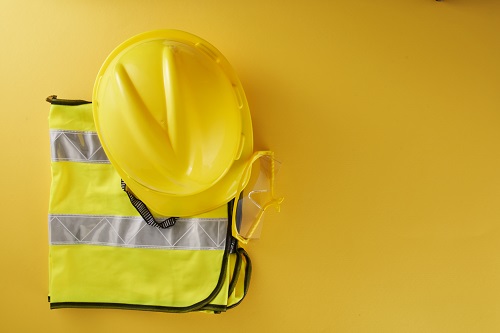Singapore: COVID-19 - Recent Updates for Tenants Seeking Relief from Rental, Lease and other Real Estate Obligations in Singapore
COVID-19 has affected all of us in a myriad of ways. Social-distancing and work-from-home measures are now commonplace around the world – almost unthinkable just half a year ago.
As we change our lifestyles, shopping habits and work patterns, commercial and corporate real estate has been deeply affected.
Singapore has acted swiftly to pass the COVID-19 (Temporary Measures) Act (“Act”) early in the year, with statutory measures aimed at providing a practical mechanism for relief from lease obligations. The Act also introduced free “Assessment” process which tenants and landlords may utilise should they find themselves unable to agree on how to address the economic impact of COVID-19.
Mandated Rental Relief for SMEs – June 2020 Amendment to the Act
In June 2020, Singapore updated to the Act, passing amendments mandating rental relief for Small and Medium Sized Enterprises (SMEs). Commercial premises such as shops and retail premises leased by SMEs benefit from up to four months of rental relief. Industrial and office space receive up to two months of relief.
Half of the relief for each type of premises is covered by government grants and subsidies, that landlords must pass-on to all tenants, whether they be legally classified as lessees, sub-tenants or licensees.
The other half of the rental relief sum is to be covered by the landlords themselves, meaning landlords are required by law to take a hit on one to two months’ rent depending on the premises type: two months for commercial space, and one month for industrial and office space. Landlords may avoid footing a portion of the rent free period on the basis of financial hardship, via an assessment mechanism provided for by the Act.
In order to benefit from the rental relief, a tenant (i.e. lessee, sub-tenant or licensee) must meet the following criteria:
- Be an SME at the group level i.e. ≤S$100 million turnover in 2019);
- Experience a substantial drop in average monthly revenue during COVID-19 i.e. average monthly revenue from April to May 2020 on an outlet level reduced by 35% or more, compared to April to May 2019; and
- Hold a tenancy in force on 1 April 2020, which must also have been:
(i) entered into before 25 March 2020; or
(ii) entered into before 25 March 2020 but expired and was renewed automatically, or in exercise of a right of renewal in the contract.
It is important to note, rental relief introduced in June 2020 does not cover relief from service charge and other components of rent that are not rental charges. For example, cleaning, utilities, garbage disposal, electricity, A&P (advertising & promotion) and the like.
Refinements to Rental Relief Assessment Mechanism and Introduction of New COVID-19 Measures for the Real Estate Sector – September 2020 Amendment to the Act
On 4 September 2020, Singapore amended the Act again, likely in response to stakeholder feedback and to clarify the terms of the Act’s application.
The amendments are understandable given that the Act was drafted and passed with a sense of urgency during the unfolding of the unprecedented COVID-19 situation, where community health and safety had to be balanced with business concerns and economic interests.
The recent September 2020 amendments provide for refinements that impact real estate matters in Singapore:
- Expanding the powers of the third party “Assessors” in order that they may make determinations on unresolved disputes between the parties on the amount of rental waiver. An example cited is where the lease agreement terms do not expressly state rent and service components, but the landlord feels that it should only be responsible to waive the “rental” portion while still collecting some amount from the tenant for service charges such as basic cleaning and maintenance of premises.
- Relief for tenancies affected by delays in renovation, fitting-out, reinstatement or other construction related disruption due to COVID-19, in which case the parties may proceed to “Assessment” aimed at achieving a just and equitable outcome if they are unable to come to a resolution. Parties should note that the first step should always be to try to come to a private settlement, followed by a Notification for Relief through the Ministry of Law COVID-19 portal if necessary. Assessment should only be harnessed if efforts at private settlement fail, in which case third party intervention by Assessors appointed by the Minister of Law would be helpful.
- The Minister of Law is empowered to extend timelines in en-bloc sales, given that it is difficult to organise large meetings and take votes for collective sale with social distancing measures in place.
Conclusion
The Act represents a thoughtful and focused effort by the Singapore government at managing the economic consequences of COVID-19. Many stakeholder perspectives are involved and need to be balanced, which is no easy task. The suspension of contractual rights has to be carefully managed as the Act is not intended to "change the fundamental sanctity of contracts made in Singapore".
Landlords on one hand would invariably expect to be paid even though their tenants experience a drop in business; landlords are likely to argue that financial risk arising from COVID-19 should fall squarely on the tenant’s shoulders. After all, landlords remain liable for property loans, although it should be noted there are schemes in place introduced through Monetary Authority of Singapore (MAS) efforts to incentivise banks to provide loan relief during COVID-19. Landlords have also argued that some of them purchased commercial, office or industrial property as part of retirement planning, and require regular rental payments to cover retirement expenses.
Tenants on the other hand contend that they need rental relief and a wider range of relief measures to survive the drastic fall in business arising from COVID-19, particularly in the market for office and industrial space which has not benefited from as significant rental relief as compared to commercial space.
The recent amendments to the Act seek to address the feedback from the ground and to calibrate the parties' rights in a measured manner. However, rent waivers and relief cannot last forever and the pragmatic way forward remains being faithful to the sanctity of contracts. Affected businesses will likely need to gird for tough times ahead.
In the meantime, it should be noted that the Act expires in October 2020, unless extended by parliament. As such, if parties wish to turn to the Assessment or Notification for Relief mechanisms provided for by the Act, it is best to act soon in case the Act is not extended by parliament beyond its October 2020 deadline.
This article is produced by our Singapore office, Bird & Bird ATMD LLP, and does not constitute legal advice. It is intended to provide general information only. Please note that the information in this article is accurate as at 11 September 2020. We will continue to monitor the situation and provide updates on any changes as soon as these are communicated to us. Please contact our lawyers if you have any specific queries.



